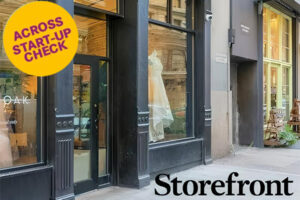BY JEREMY LANGLEY
Historically, owners of “physical retail” properties have operated blind, unable to tell where shoppers go, what they do, how long they spend there, and where they go next. This makes competing with online retailers – who are able to get click-by-click insight into customer preferences – challenging. MLA opens up new possibilities in understanding shopper behavior and creates the potential for sweating real estate assets in a way that was never possible before. It helps improve leasing decisions (what’s the optimum placement for brand A to generate traffic and sales?), marketing (how effective was my campaign and event?), and capital expenditure (is investing in refurbishing a cold-spot going to transform its fortunes?). The benefits of the insight are transformative.
The world of MLA is an innovation that has also created privacy concerns, however. We operate globally and know that our customers have hit roadblocks in countries where questions have arisen about the privacy implications of mobile location analytics, often from regulators for whom this is a new technology with unknown privacy impacts. In particular, there has been a misguided belief that MLA technology tracks identifiable individuals and gives the data owner (the shopping center owner in our case) an understanding of where known individuals go and what they do. This is not the case, and while concerns are slowly disappearing, it is worth explaining how we do what we do.
There are, in essence, only two ways of collecting MLA data in today’s market. Opt-in data, from technologies such as iBeacons, rely on shoppers downloading an app and, in doing so, consenting to share data, usually in return for offers. Privacy is knowingly sacrificed in this scenario by the consumer. Anonymized MLA providers like Path Intelligence, on the other hand, irreversibly encrypt signal data at the point at which it is received. We protect privacy in return for gathering a statistically robust sample size. With this method, there is simply no way a shopper can be identified. Even without encryption, having possession of a cellphone’s MAC address does not identify an individual, the only way to do so is to gain access to data that typically only law-enforcement agencies can request.
Vendors such as Path Intelligence are mindful of the importance of both doing the right thing and being seen to do the right thing, however, so we have helped develop, and adhere to, the world’s only existing MLA Code of Conduct, developed in the US by the Future of Privacy forum. It requires us to provide opt-out services and obliges a customer to erect signage to that effect. You can find out more here http://www.futureofprivacy.org/issues/smart-places.
The days of outright resistance are diminishing as shoppers and regulators understand their privacy is genuinely protected, but MLA vendors like ourselves should remain vigilant to consumer concerns and always be prepared to respond positively and proactively.
What is your opinion on this topic? Discuss it with us! Send your opinion to opinion@across-magazine.com !







